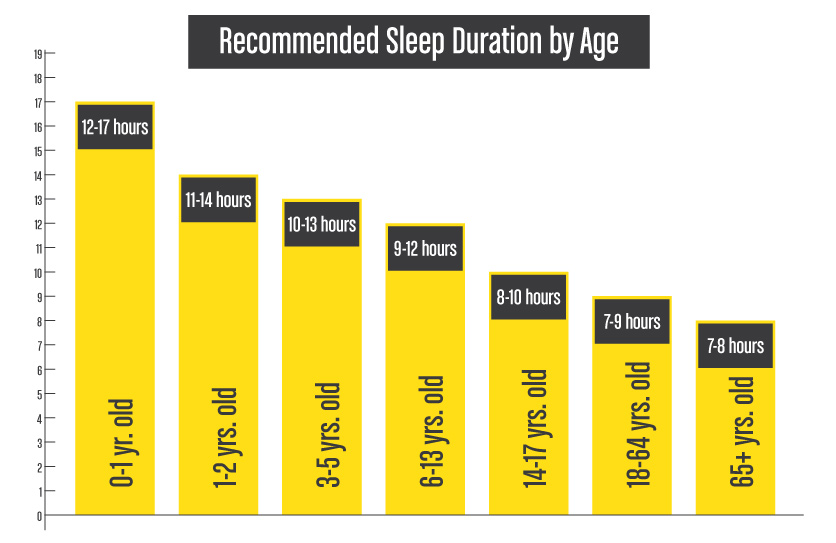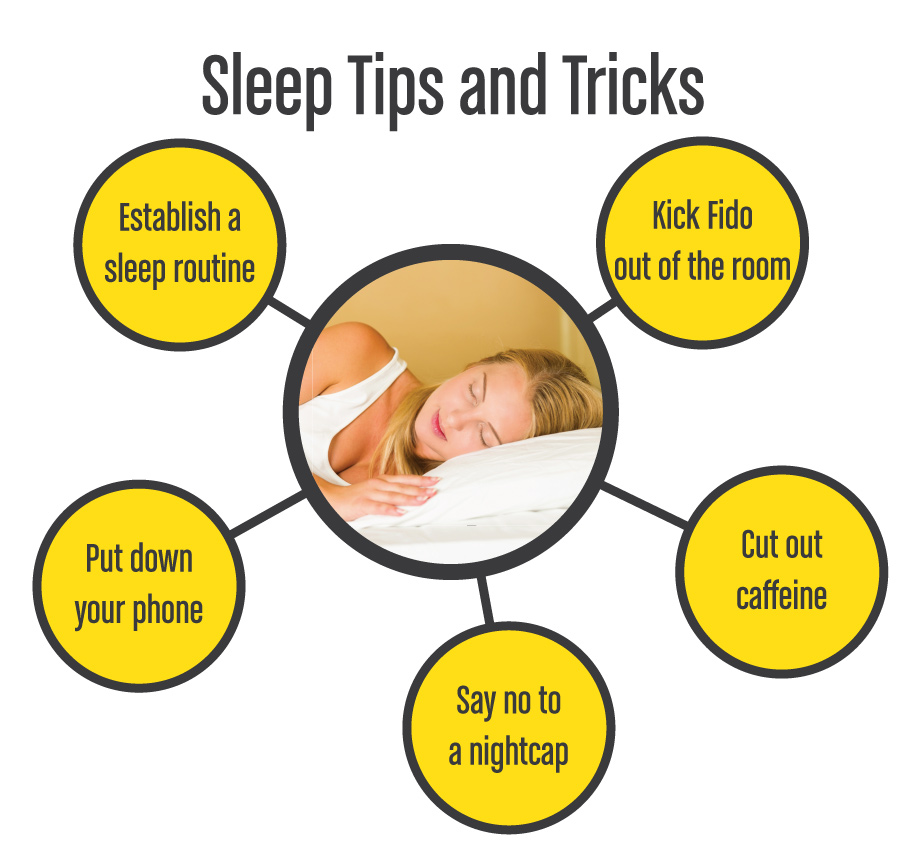A good night’s rest is an essential part of staying healthy. Healthy sleep provides a wide range of health benefits, including reducing the risk for chronic diseases and improving memory function. It may also help with weight management by regulating appetite hormones like ghrelin and leptin. Healthy sleep can be achieved in a number of ways. This blog post will discuss some common causes of poor sleep as well as tips to get a more quality shut-eye!
In today’s busy world, getting a good night’s sleep has fallen down our priority list. Sleep is no longer at the top of everyone’s to-do list: Work, chores, social time, and entertainment are more important than rest.
Therefore, sleep is crucial; it’s just as essential to mental and physical health as food and water.
Sleep plays a profound role in our ability to think, remember things, stay alert, and make sound decisions. When it is disrupted or insufficient, there are many unpleasant consequences, and the more you deprive your body of restorative sleep for long periods, the greater the chance that you will overall have poorer health.
What Is a Healthy Sleep?
Sleep is a complicated process that affects our entire body. When we sleep, we cycle through several stages with increasing rapidity from light sleep (stages 1 and 2) to deep sleep (stage 3) and then the stage of REM (rapid eye movement). Successfully cycling through all the various sleep stages allows sleep to do its critical function of restoring our bodies and minds. The most significant benefits of sleep come when you get enough uninterrupted sleep, maintain a routine that matches your natural circadian rhythms, and have time to rejuvenate during the day. Learn more about the different components of a healthy sleep pattern below.
 Healthy sleep is instrumental to feeling like your best self. Better quality sleep leads to improved mood, increased memory and creativity, strengthened immunity, and an easier time maintaining a healthy lifestyle.
Healthy sleep is instrumental to feeling like your best self. Better quality sleep leads to improved mood, increased memory and creativity, strengthened immunity, and an easier time maintaining a healthy lifestyle.
Getting enough restful sleep is vital to your health and well-being, yet many of us don’t get enough. Sleeping poorly can lead to feeling sluggish or lethargic, depression, decreased responsiveness, poor judgment, and difficulty concentrating.
Consider the quality of your sleep and what you experience before going to bed each night. Healthy sleep requires sleeping without any disturbances for a certain number of hours. It also means getting quality and uninterrupted sleep over those hours and doing so with consistency.
Sleep Duration
 Sleep is essential for everyone, but it’s especially crucial to the health of adults aged 65 and higher. The National Sleep Foundation’s study found that people in this age group are sleep deprived by an average of 43 minutes each night (compared with a typical recommended time of 7-8 hours per night). Children require more sleep than adults as they are still growing quickly. The amount of required sleep depends on a child’s age, with children aged 9-11 years requiring 8 hours per night and adolescents aged 12-17 years requiring 10 hours per night.
Sleep is essential for everyone, but it’s especially crucial to the health of adults aged 65 and higher. The National Sleep Foundation’s study found that people in this age group are sleep deprived by an average of 43 minutes each night (compared with a typical recommended time of 7-8 hours per night). Children require more sleep than adults as they are still growing quickly. The amount of required sleep depends on a child’s age, with children aged 9-11 years requiring 8 hours per night and adolescents aged 12-17 years requiring 10 hours per night.
Sleep Continuity
Here are some tips for a restful night. A continuous cycle of sleep is the best type. Interruptions can leave you feeling tired when you wake up in the morning. Disrupted sleep prevents your body from cycling through all four stages of sleep, and you are unlikely to get a good night’s rest. For example, people who have sleep apnea experience brief pauses in breathing during the night. Many people with insomnia have a sleep that looks normal, but due to disruptions in their sleep pattern, their brain feels deprived of sleep. Many factors influence the amount and quality of a person’s sleep, including levels of stress, physical pain or discomfort, mental disorders such as depression or anxiety, and problems in occupational functioning.
Sleep Timing
Important aspects of healthy sleep are timing and alignment. Your body’s internal clock and the cues from the environment affect circadian rhythms. The most important regulator of our circadian rhythm is light. Light, regardless of the type – whether it be bright and artificial or dimmer and natural – awaken us from sleep-producing chemicals in a way that promotes wakefulness while encouraging sleep-promoting chemicals when we are resting.
When sleep timing is out of sync with circadian rhythms, as often occurs with shift workers or people experiencing jet lag, it’s more difficult to fall asleep, maintain an uninterrupted sleep session, and get enough hours of rest.
Maintaining a regular bedtime and going to sleep at the same time each night promotes healthy sleep. Researchers also observed that even though their sleep duration was unchanged, their sleep quality suffered. The more consistently a person’s bedtime approaches, the less likely they will gain weight and suffer from diabetes.
Sleep Tips and Tricks
Sleeping for a reasonable amount of time may come down to tricking your body into having a night of adequate or better sleep. Here are some tips to try if you want good, long, and restorative sleep:
 Establish a sleep routine
Establish a sleep routine
In order to achieve better sleep, it is important to establish a routine. This includes having the same bedtime every night of the week and sticking to it Sunday through Friday – as well as on special occasions like holidays.
Kick Fido out of the room
You may love cuddling with your furry family members, but research has found that owners who let their pets sleep in the bed have a more interrupted and less restful sleep.
Cut out caffeine
Even if you only drink caffeine during the day, it can keep you from sleep at night.
Do not drink or eat anything that has caffeine in it later than mid-afternoon. That includes:
- tea
- soft drinks
- chocolate
Put down your phone
Disconnect the electronics at least one hour before bed to allow your brain time to get ready for sleep.
Say no to a nightcap
It’s no secret that alcohol affects your sleep patterns. So even if you manage to fall asleep, drinking will keep your brainwaves messed up and result in a more shallow sleep. And it doesn’t stop there: When you do finally wake up in the morning, you know won’t be feeling rested at all.






